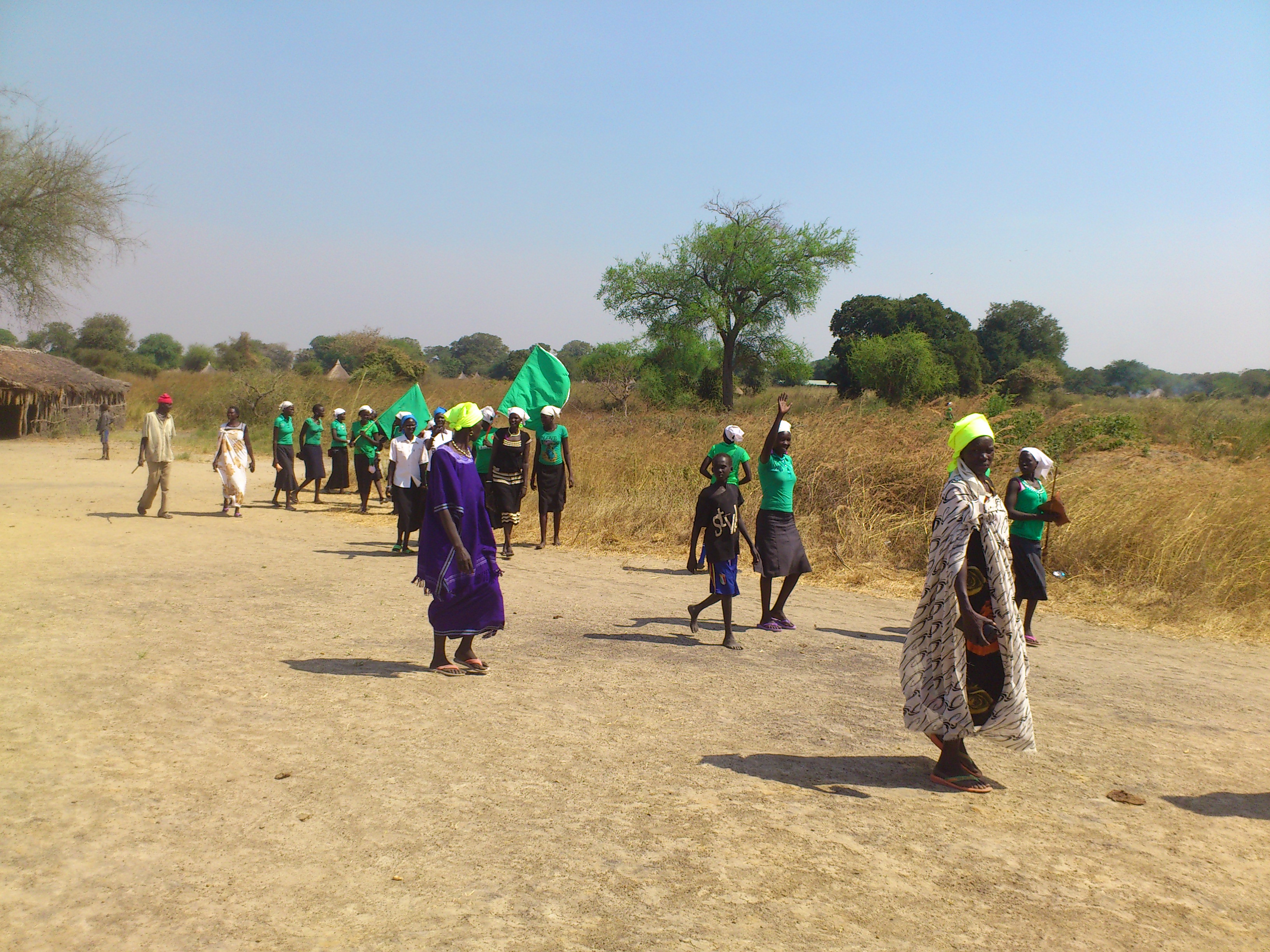In South Sudan, the causes of famine run deeper than just food shortage. Since gaining independence from its northern neighbor in 2011, South Sudan has seen its long-sought peace dissolve rapidly into bitter conflict, turning the world’s youngest country into one of its most unstable. The conflict has thrown South Sudan’s already-fragile institutions into disarray and left much of the nation fearing for its safety, as government and opposition forces clash across the country. In this climate, food has become increasingly scarce. Crops are looted, roads are destroyed, and government forces continue to block food shipments to opposition-controlled regions.
Though it is clear that war has limited peoples’ access to food, social issues help fuel the acute hunger in South Sudan and perpetuate the cycle of famine and violence: polygyny—one man marrying multiple women—and forced marriages. With more than 4.8 million people in South Sudan facing food insecurity—almost half the country’s population—many families have turned to dowry payments to put food on the table. With hunger now gripping much of the country, activists report that South Sudanese families are coming under increased pressure to force young women and girls into marriage in order to obtain cattle, which serve as a source of food, financial security, and social status. For many young South Sudanese women and girls, marriage is not a choice but a tragic obligation.
The issue of forced marriages is as much linked to hunger and violence as it is to the unequal and abusive treatment of women. In South Sudan, the practice of polygyny is both legal and widespread. Girls as young as 12 years old are pushed into marriages with men many years older, many of whom meet dowry demands by marrying off women in their own family. Educated women are viewed as arrogant, disrespectful, and promiscuous, so families usually attempt to marry their daughters before they have even completed school in order to maximize the dowry they receive. Unsurprisingly, these practices cause women to suffer physical and emotional abuse: Child brides can suffer acutely from the trauma of separation from their families and the expectation to engage in a sexual relationship before they are willing. Famine has not so much created these problems as it has further skewed marriage incentives, adding fuel to an already raging fire.
In addition to threatening the well being of young women in South Sudan, polygyny also perpetuates civil conflict in the region. Polygyny inevitably creates a class of unmarried, usually poorer, men. Constrained by their socioeconomic status and unable to find wives, these men are pushed out of their home communities. With the promises of a bride and heightened social status, joining the armies of the civil war’s opposing factions becomes increasingly appealing. At times, it may seem like the only way for a young man to escape polygyny’s underclass.
International interventions in this civil war have consisted of humanitarian responses, as well as diplomatic and economic pressure. A recent arms embargo imposed by the United States joins other targeted sanctions, but with Russian and Chinese resistance on the Security Council, there is little hope for significant UN pressure on South Sudan. Humanitarian assistance, specifically food aid, remains the most effective international tool in alleviating the effects of the conflict. The United States has allocated over a billion dollars towards food aid—over $500 million in 2017 alone—which, along with contributions from other countries, comprises the single largest sector of international humanitarian spending on South Sudan.
Although food aid helps to alleviate food insecurity in the short term, it fails to address the underlying economics of forced marriages that contribute to the problem. A systemic imbalance in the marriage market created by polygynous marriages will continue to pull young girls out of schools and force young men into a future of instability and violence. Thus, while remaining an important immediate response to South Sudan’s humanitarian crisis, food aid falls short of creating the meaningful social stability required for peace and prosperity in the country.
The key to a long-lasting solution is education. Families who rely on their daughters’ dowries for security see education as a threat, so they treat educated young women as economic objects. It is imperative for families to look toward education rather than away from it. Having a more educated female population generally leads to later marriages, lower fertility rates, lower maternal and infant mortality rates, and greater social mobility. Through education, daughters can become valuable workers who contribute to their families using their skillsets rather than through just the value of their marriage.
Challenging cultural norms requires significant commitment of time and effort, but change is both possible and necessary. A unique opportunity to achieve this shift lies in pairing food aid with education; by doing so, the international community can implement targeted interventions, as aid workers decide how and where to distribute food. Policy makers can draw inspiration from publicly and privately funded Food for Education programs, such as the US Department of Agriculture’s McGovern-Dole Program, which incentivize school attendance by providing school meals along with training to teachers and other support activities. These successes illustrate a potential plan for a similar program which boosts girls’ education, challenges the practice of forced marriages, and serves as the first step toward finding a long-term solution to South Sudan’s food shortage crisis.
The situation in South Sudan is dire: The vicious cycle of the country’s civil war and its polygynous traditions have led to ever-deepening hunger and violence. Both a cause and a consequence of South Sudanese force marriage practices, the current food crisis calls for a re-evaluation of current aid efforts in the region. Food aid, though effective in the short-run, fails to offer a sustainable, long-term solution to forced marriages and the marginalization of women in South Sudanese society. True progress will only come when both the country’s immediate and deep-rooted issues are tackled in a way that acknowledges and addresses the indivisible link between the two. Photo
